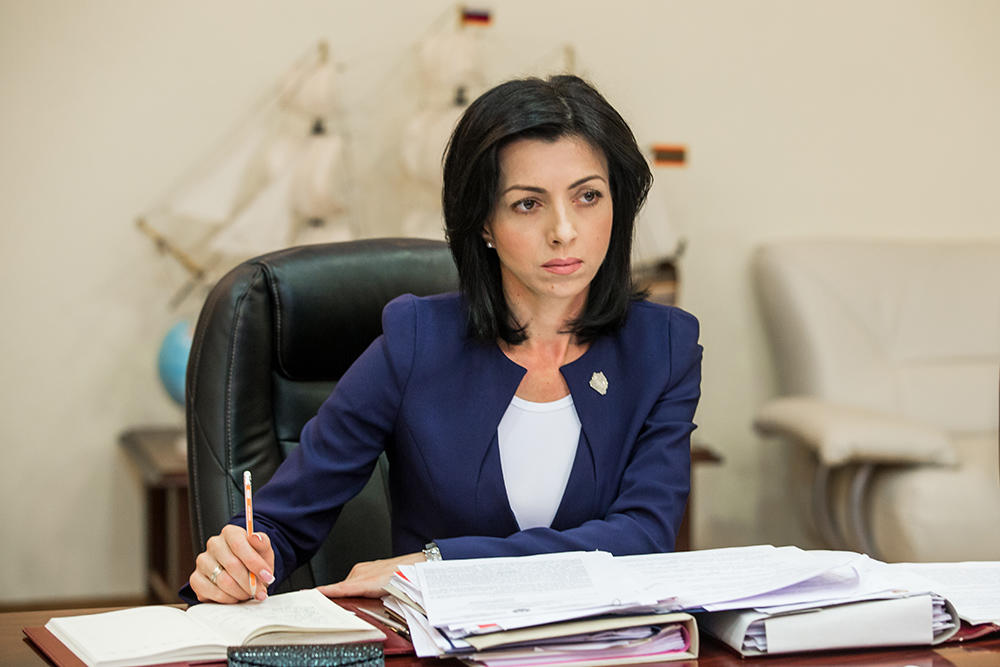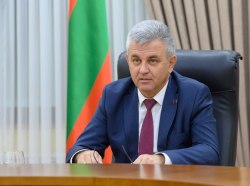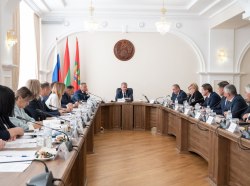Yevgeny Shevchuk held a meeting with the prime minister, Tatyana Turanskaya, and the deputy prime minister on legal regulations, Alexander Kisnichan.
During the meeting the president was informed on the execution of a number of instructions related to the development of measures aimed at stabilising the socio-economic situation in the republic. In particular, the government proposes to impose an offshore duty. It should be mentioned that the president has already submitted such a draft law to the Supreme Council, but MPs have rejected it.
The president's press office reports that in eight months the state budget has failed to receive nearly 537 million roubles as compared to the same period in 2014. It is recalled that the main source of budget income is tax revenues. At the same time, companies registered in offshore zones perform business activities in Pridnestrovie, raise revenues, but do not pay taxes both in Pridnestrovie and at the place of their registration. «According to the estimates, in several years Pridnestrovie's residents have transferred nearly a billion dollars to offshore organisations. This, undoubtedly, leads to the shortfalls in tax payments to the country's budget," noted the premier. It is recalled that the Supreme Council has approved the budgets of Pridnestrovie and the Unitary Social Security Fund with a deficit on social items of $50 million that is not ensured with real repayment sources.
As was emphasised during the meeting, the approval of the offshore duty bill would equalise the opportunities of making business for companies registered in offshore zones and domestic economic agents.
«One of major areas of spending revenues from this duty is paying off salary and pension arrears to public sector employees," announced Tatyana Turanskaya.
Besides, the government has submitted a number of draft laws providing for the change of tax system. It was noted at the meeting the government is, first of all, proceeding from the fact that the new legislation must comply with the taxation principles adopted in EU and Eurasian Union countries.
Today the government is implementing a number of measures aimed at supporting the country's economy. In particular, in order to boost business activity, the government has proposed to reduce natural gas prices for industrial enterprises. The customs duty on import meat products has also been reduced. The government believes this will cut prices for this production and increase citizens' purchasing capacity. In addition, efforts have been made in recent years to maintain the exchange rate of the national currency. These measures are, first of all, aimed at protecting the most vulnerable categories of citizens. According to the government's estimates, such approaches to the regulation of macroeconomic processes will be more efficient than rouble depreciation over the long run.
It is recalled that the Supreme Council has rejected the anti-crisis package which was earlier submitted by the government. At the same time the government intends to further develop additional proposals aimed at regulating economic processes within existing resources.











